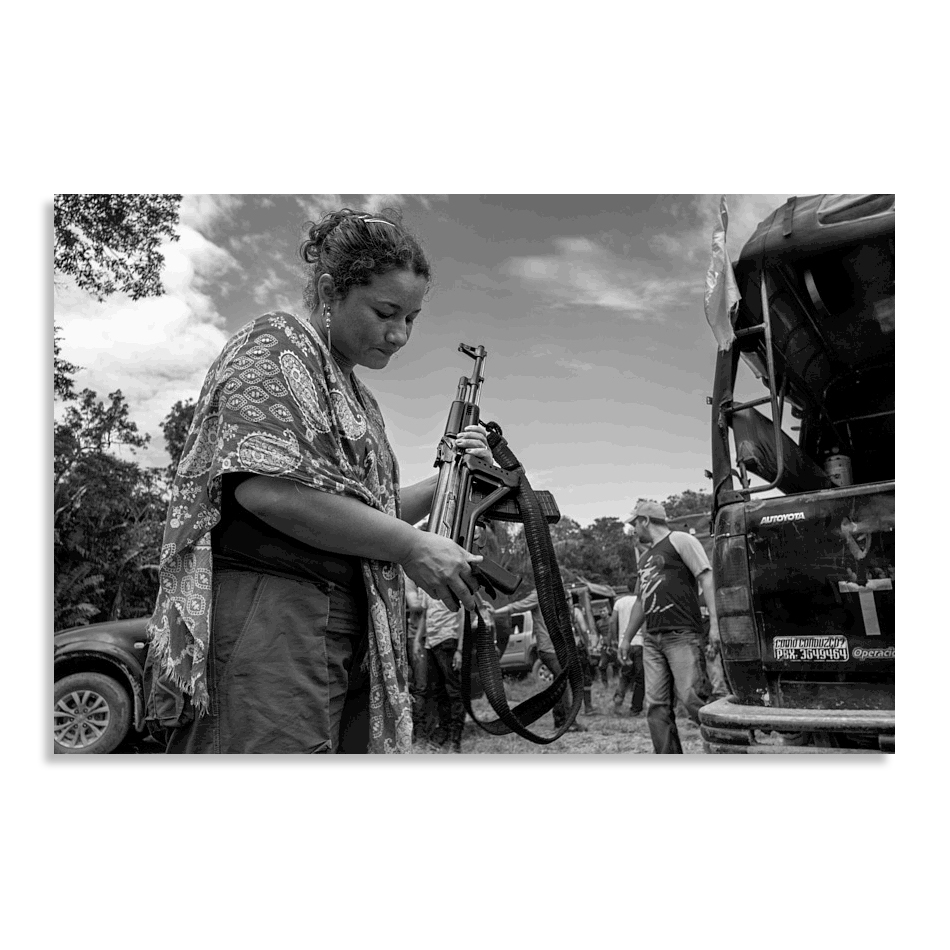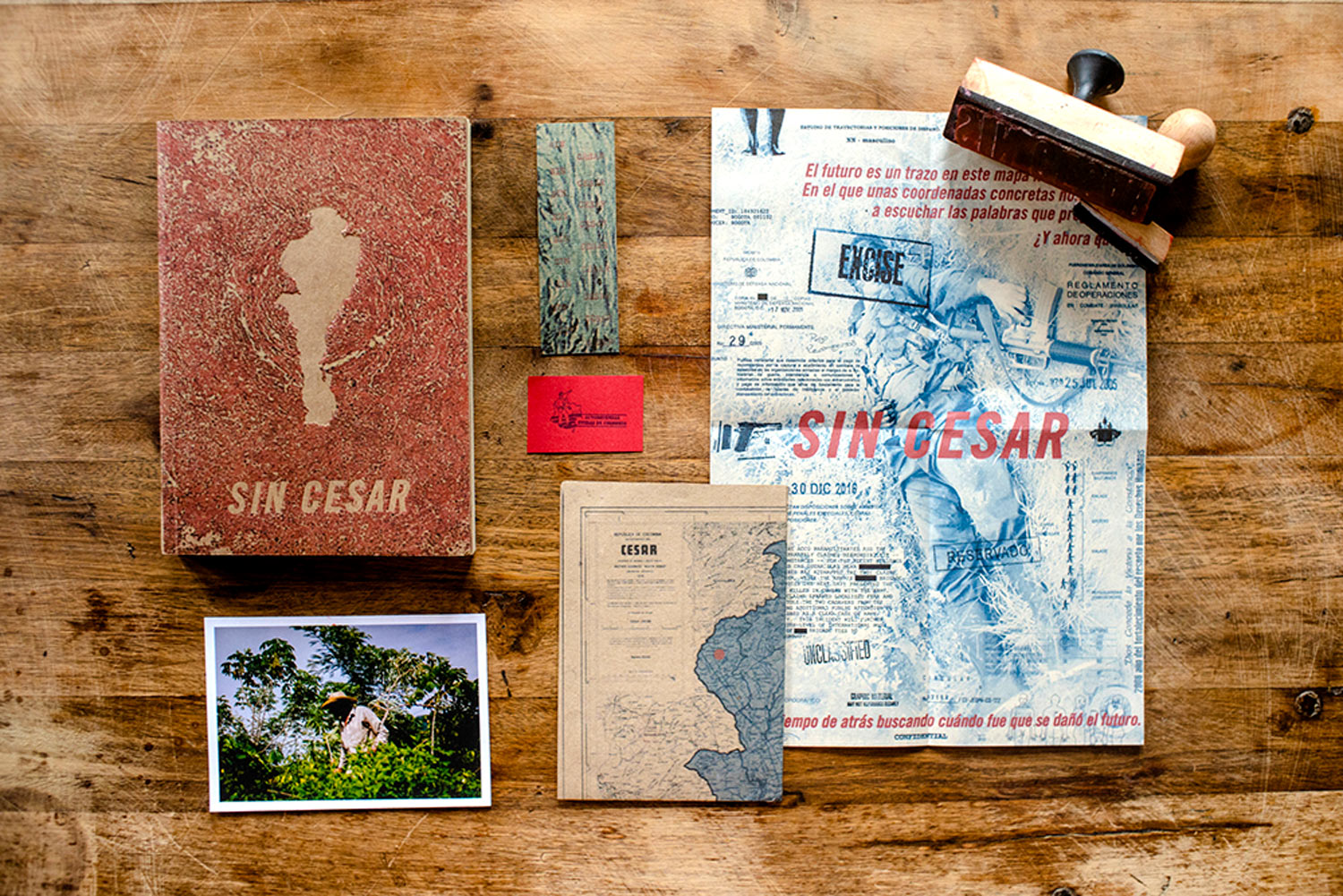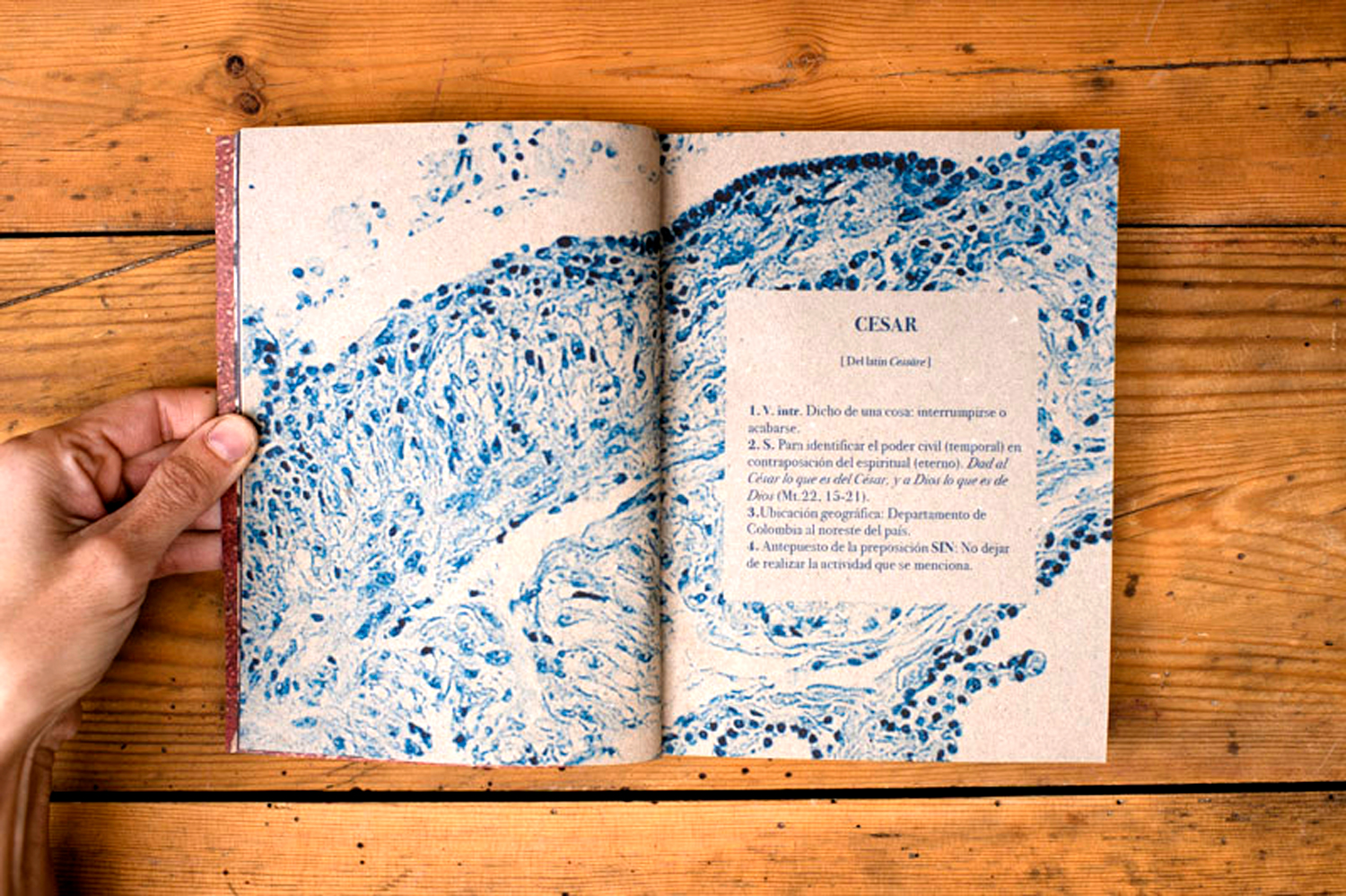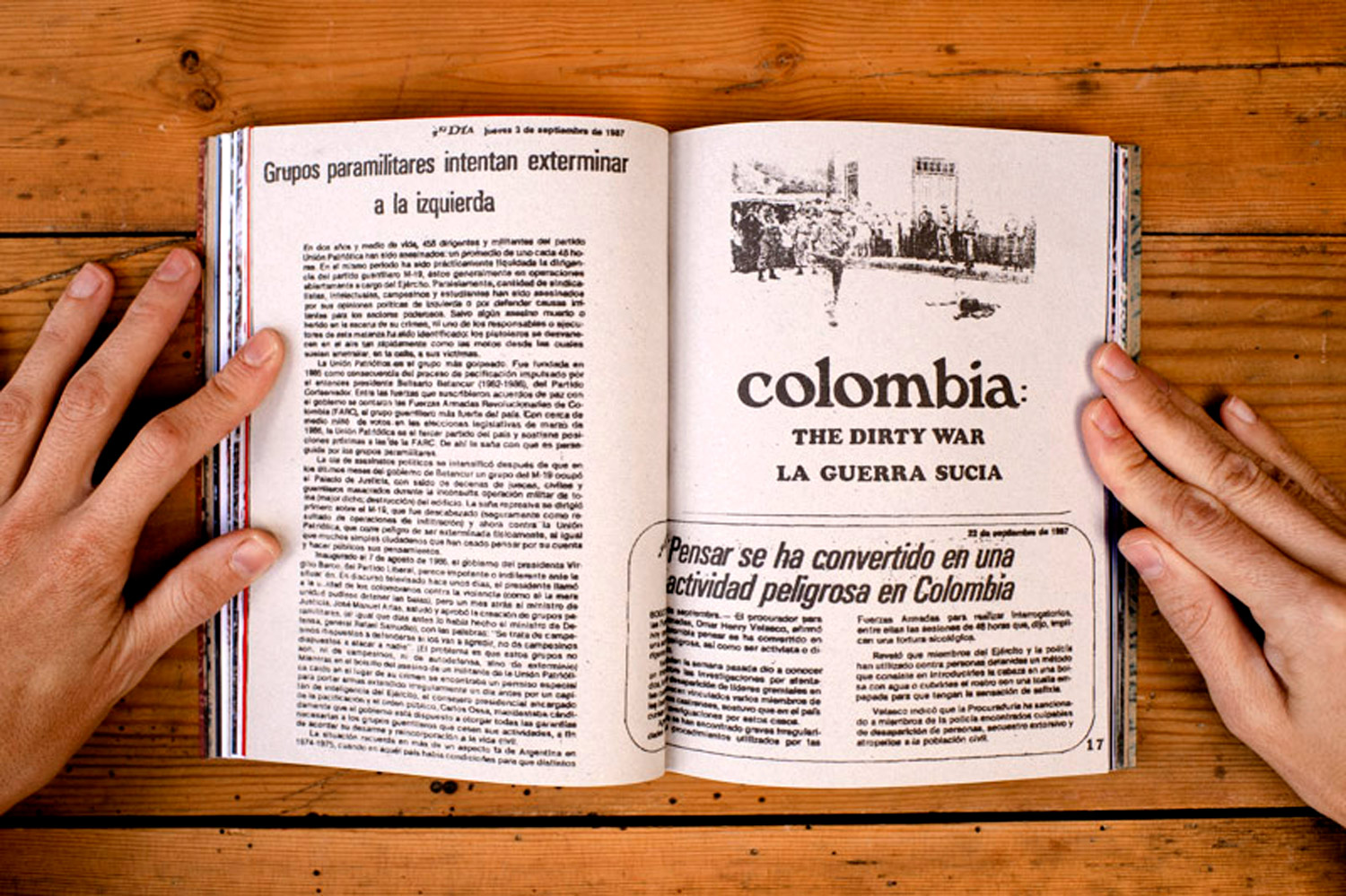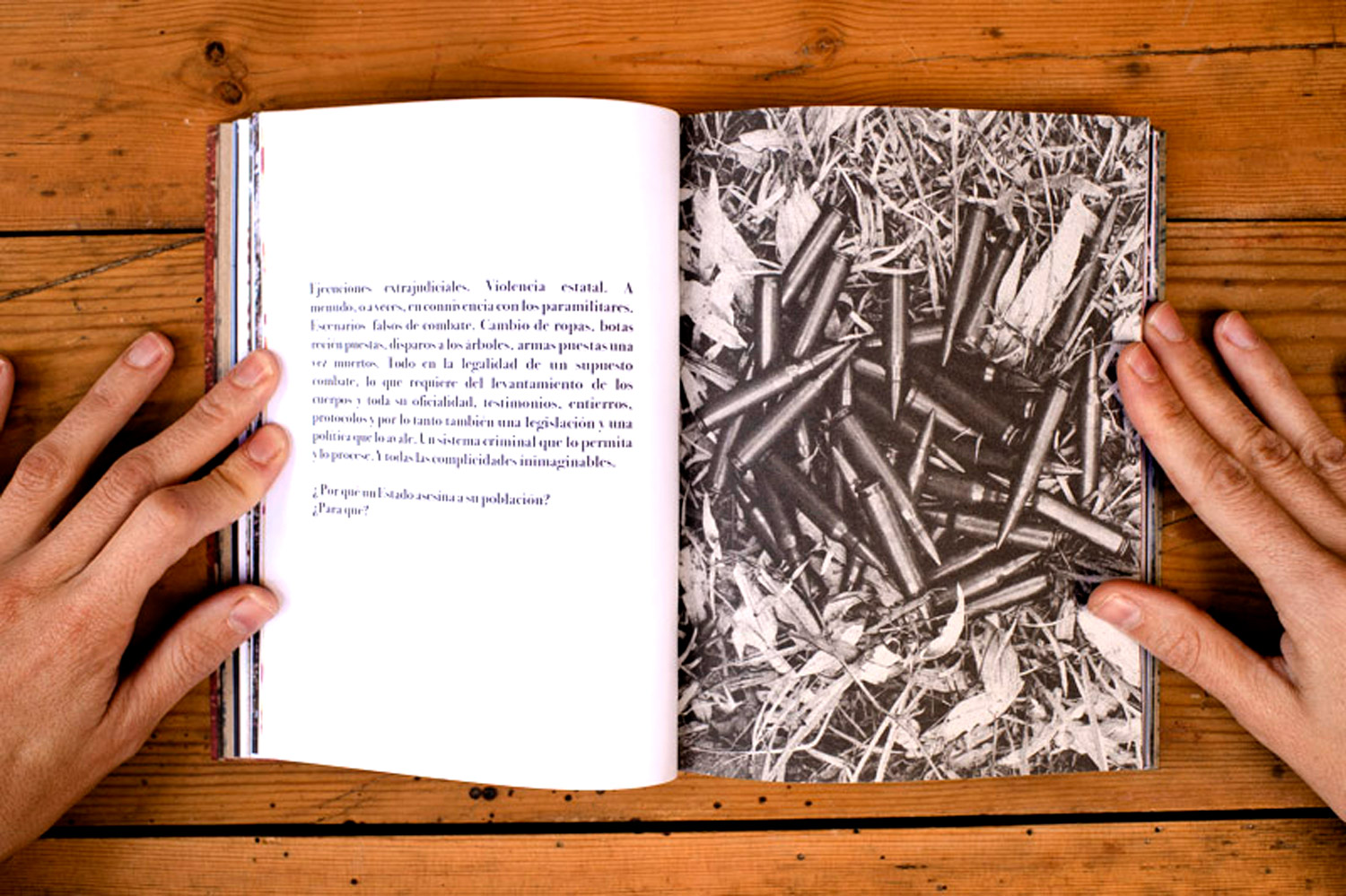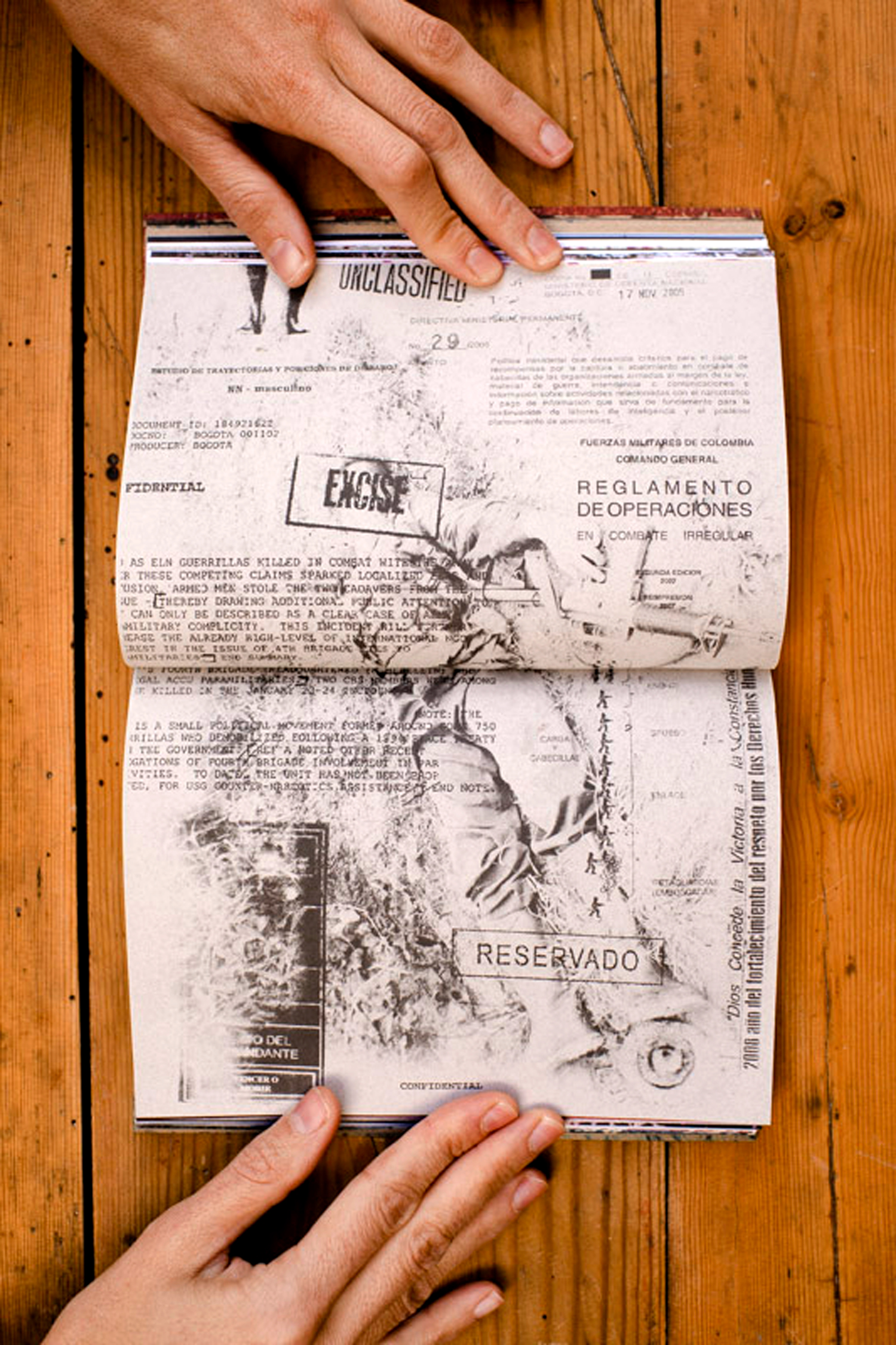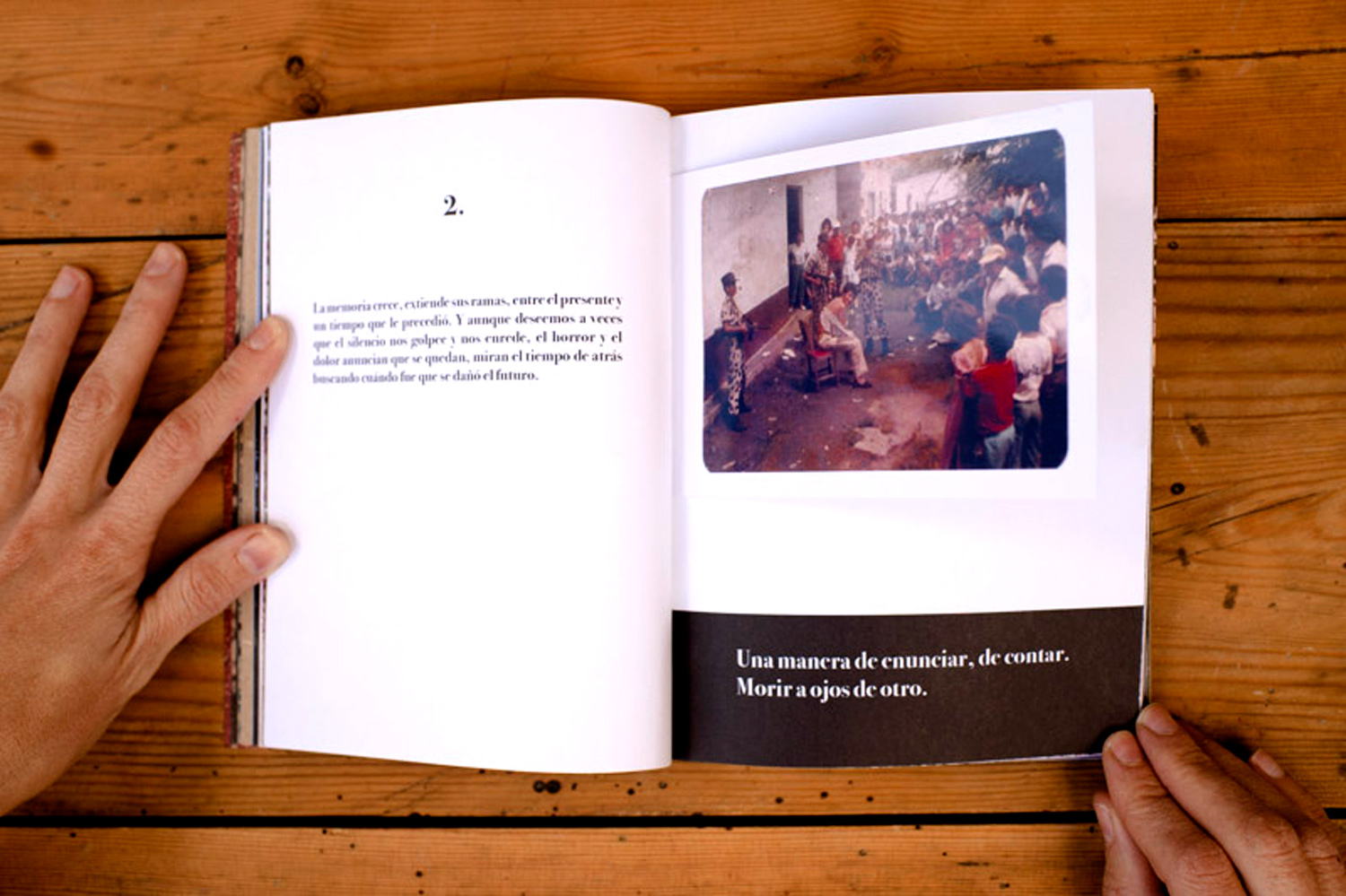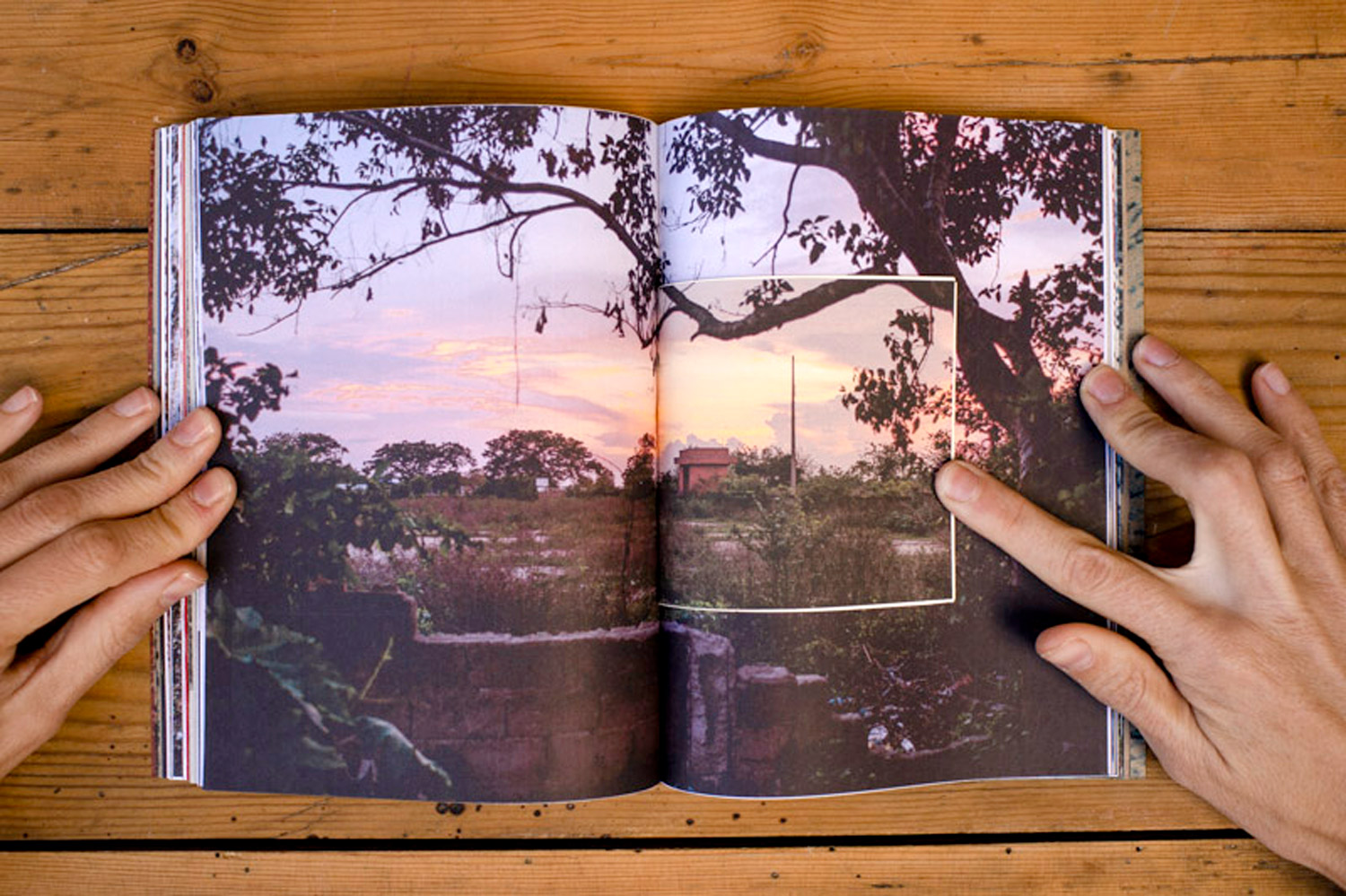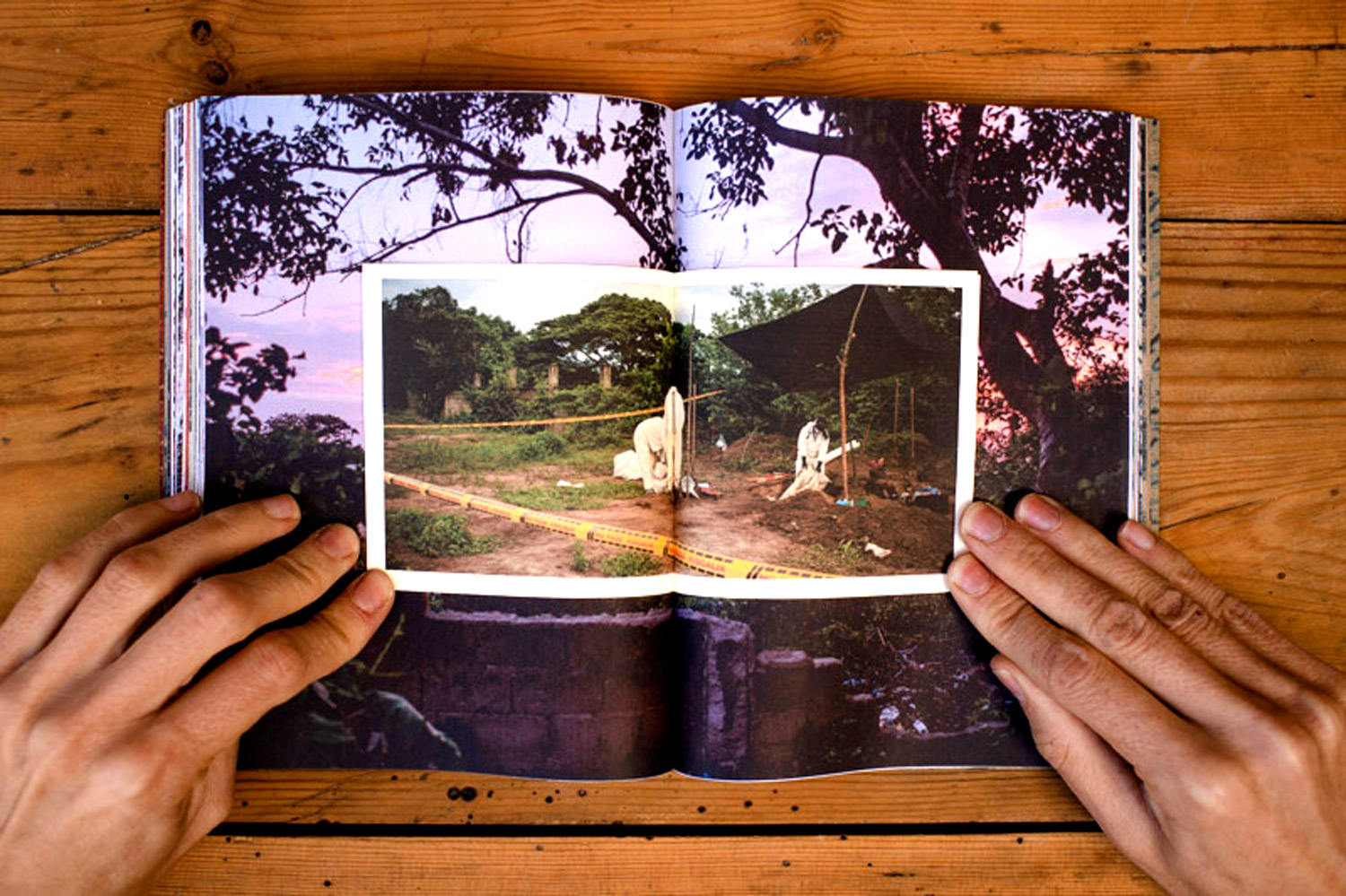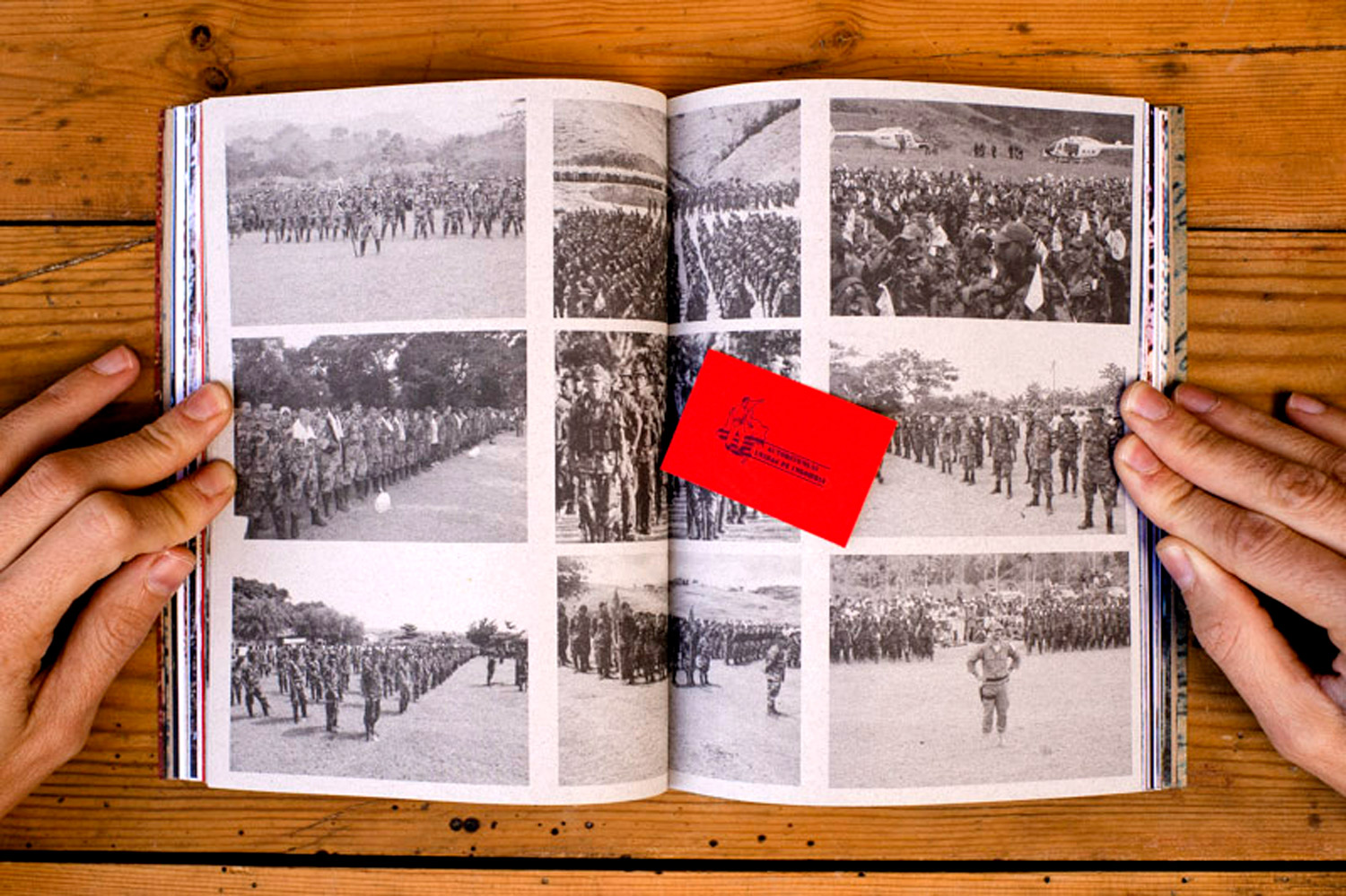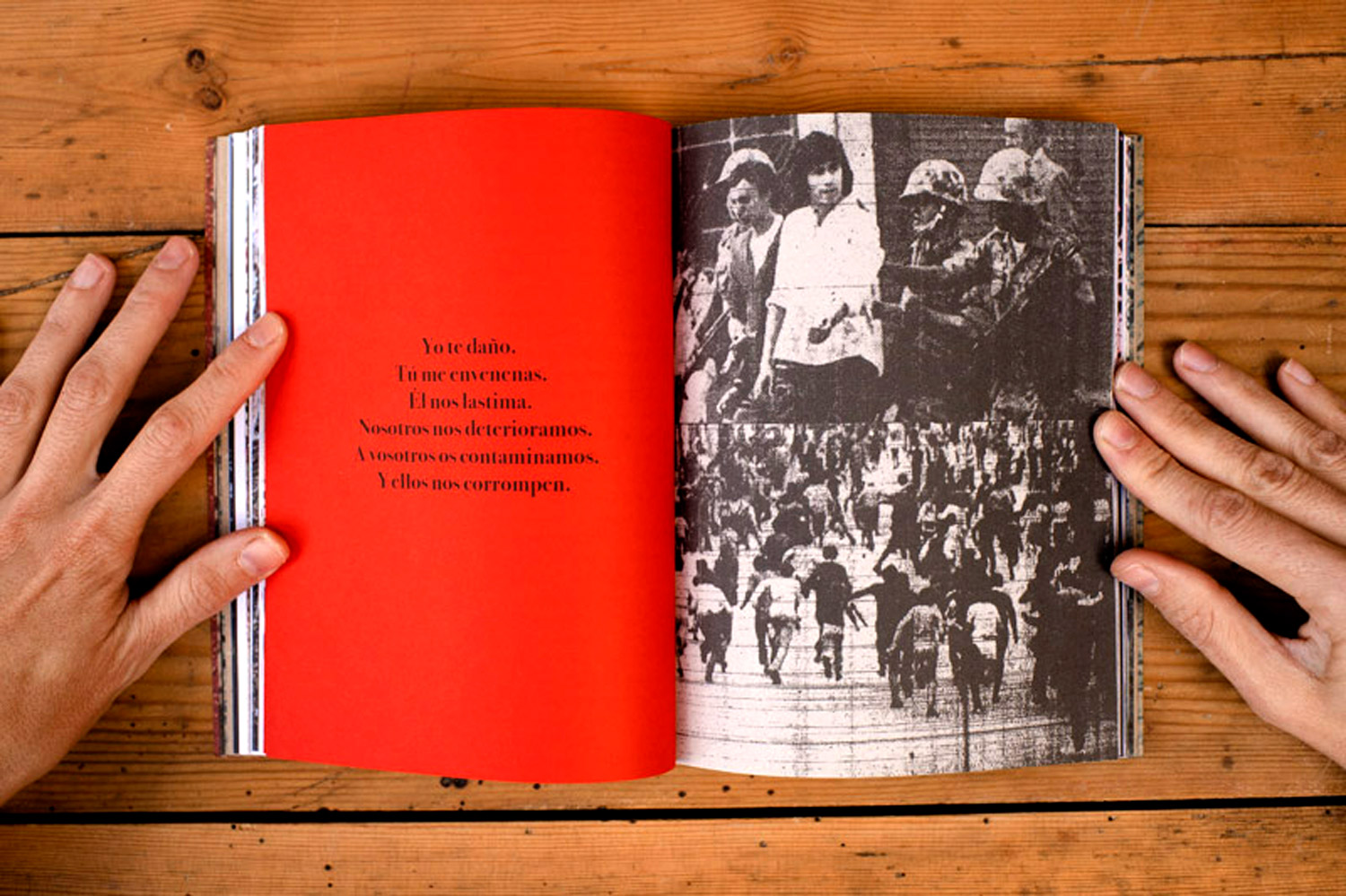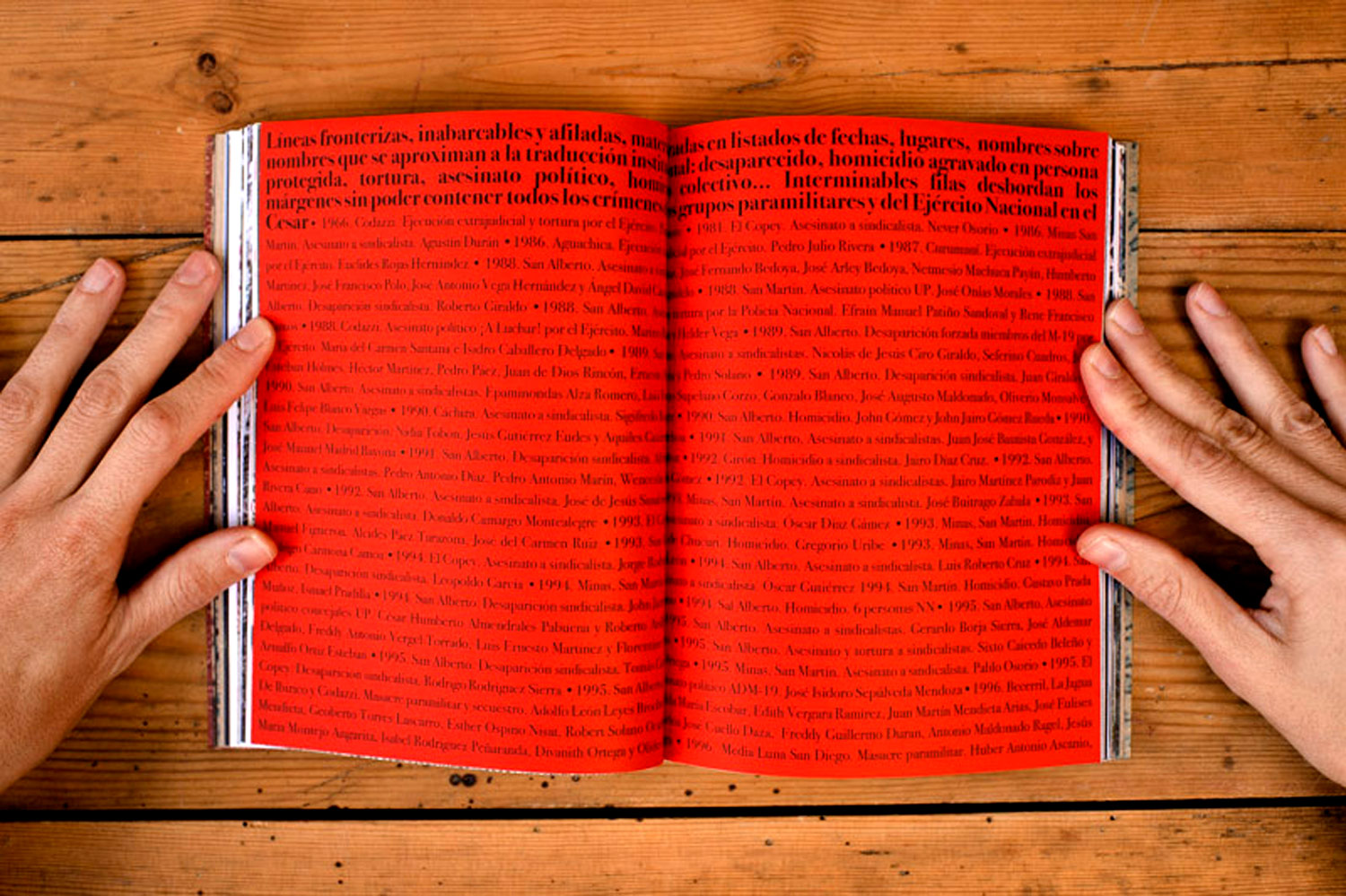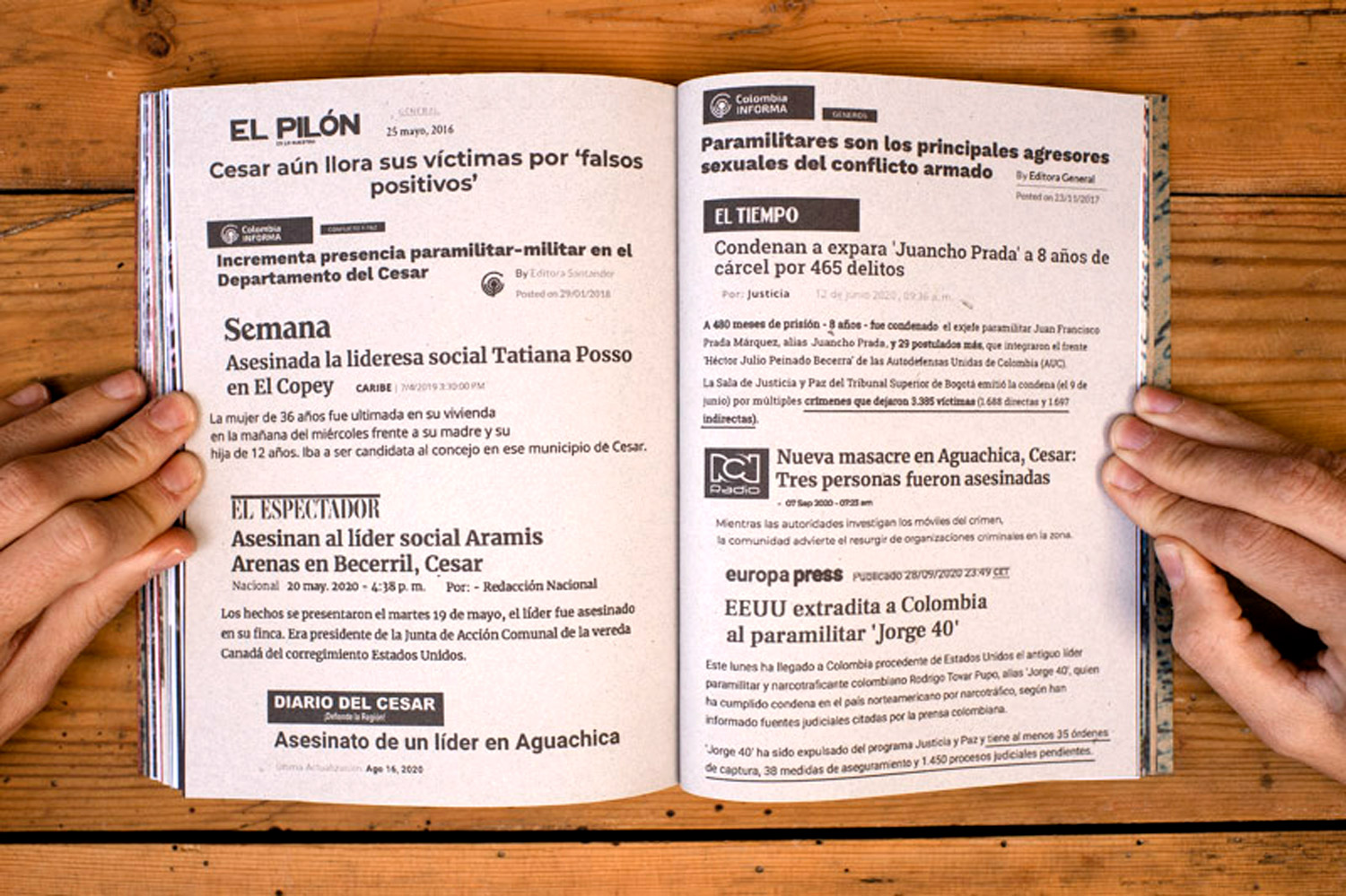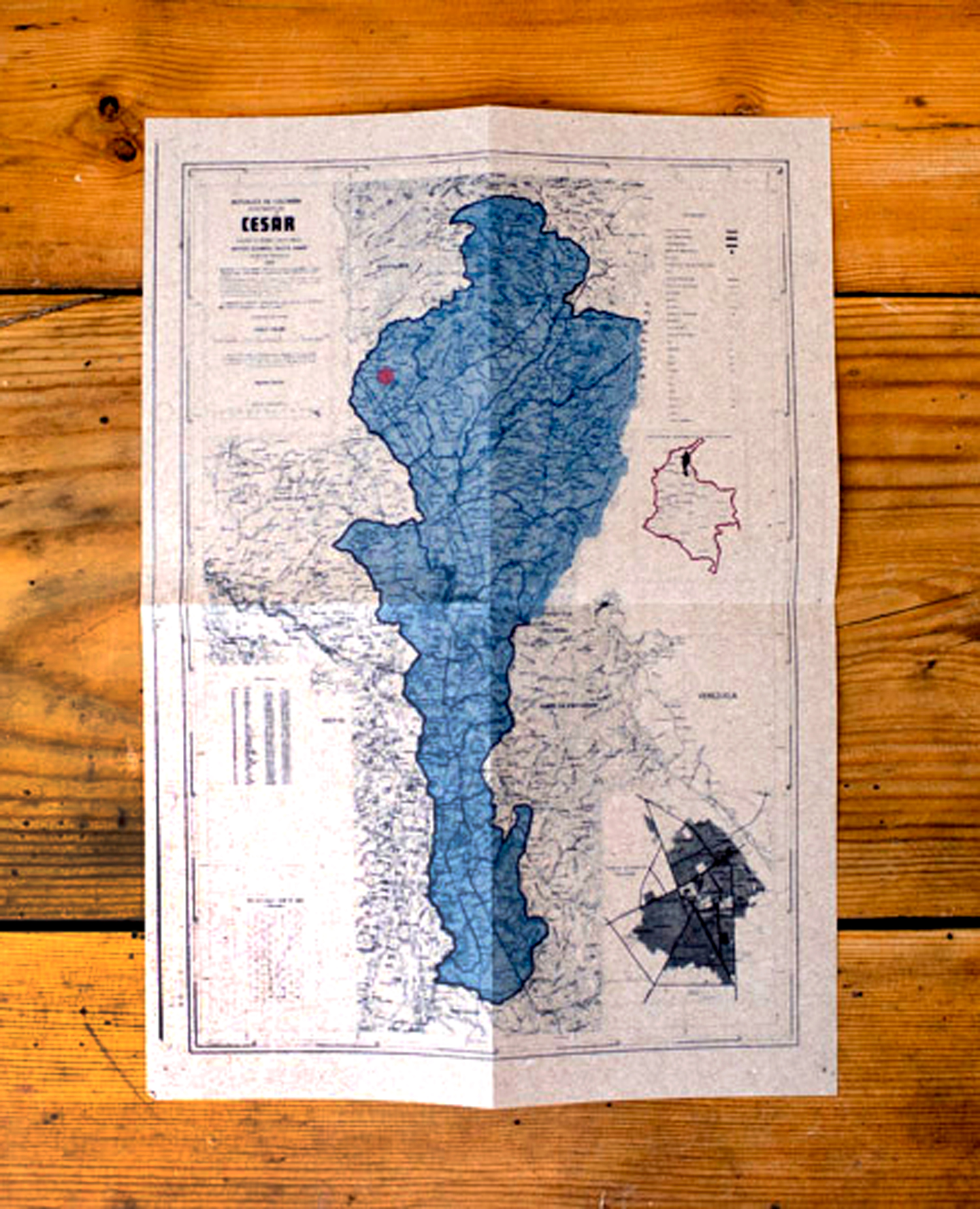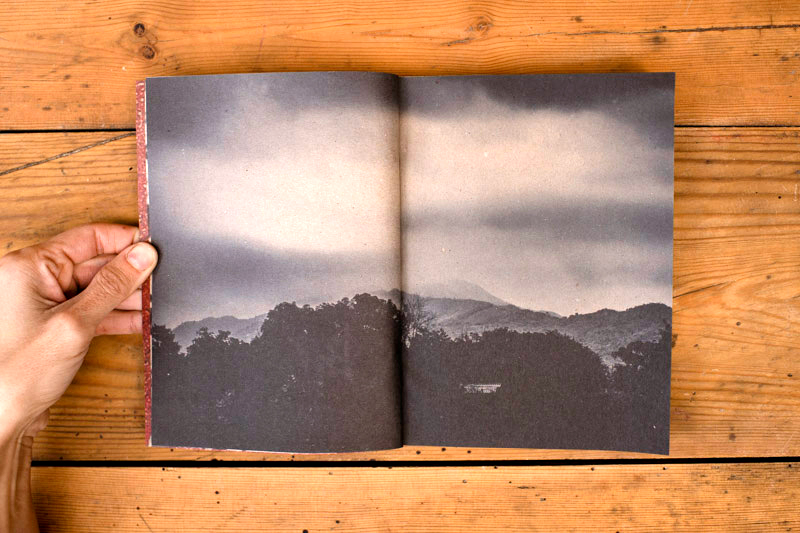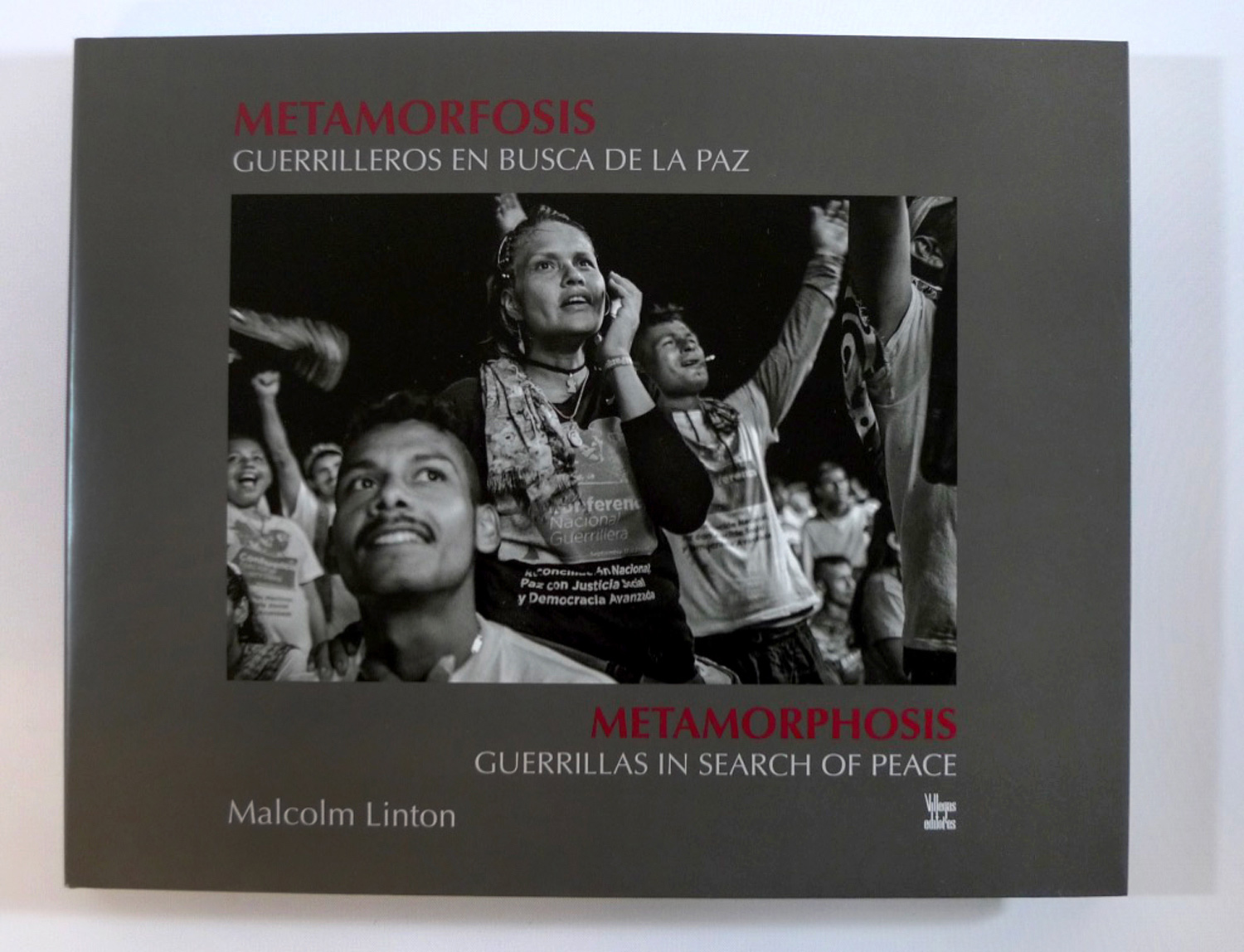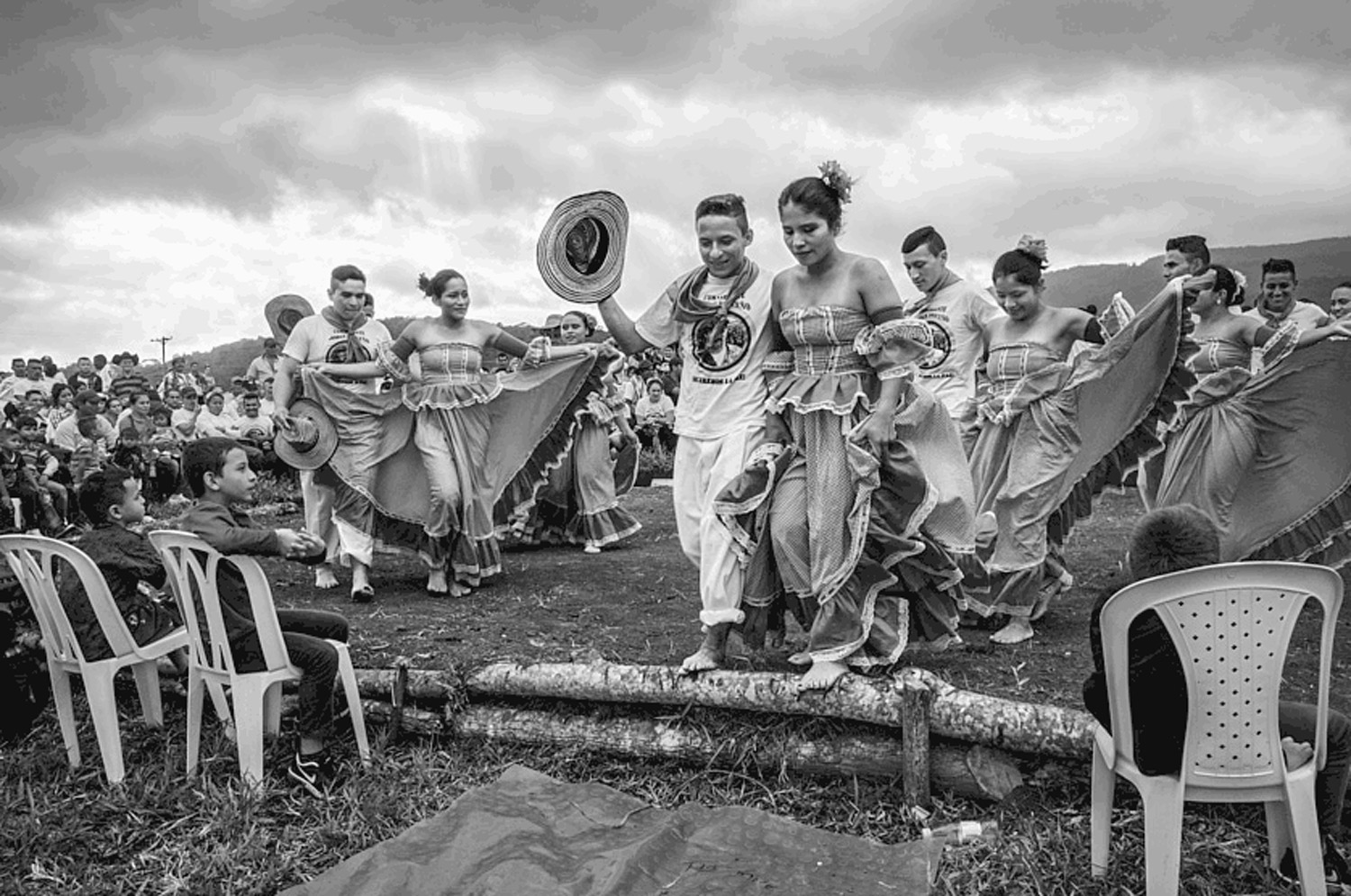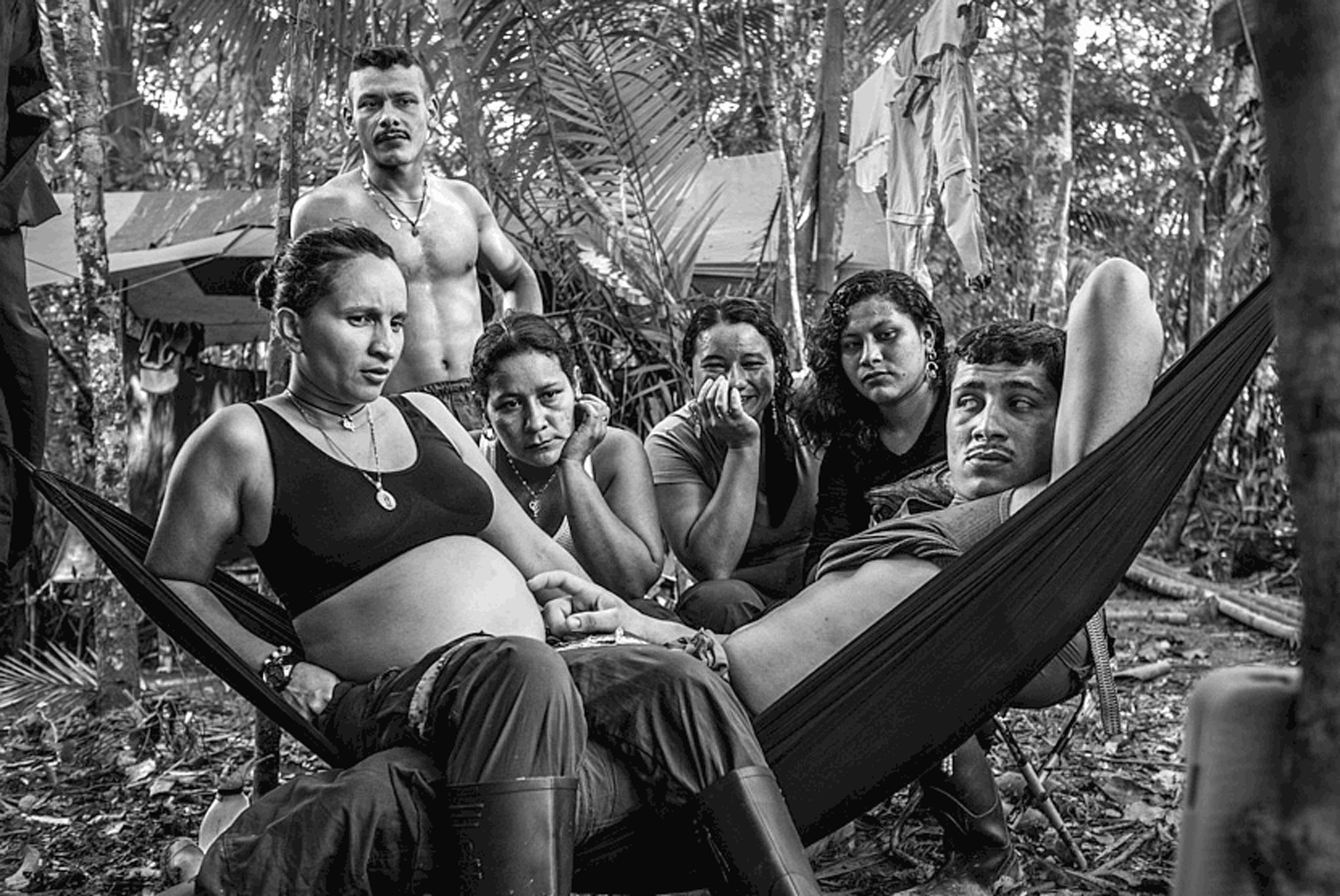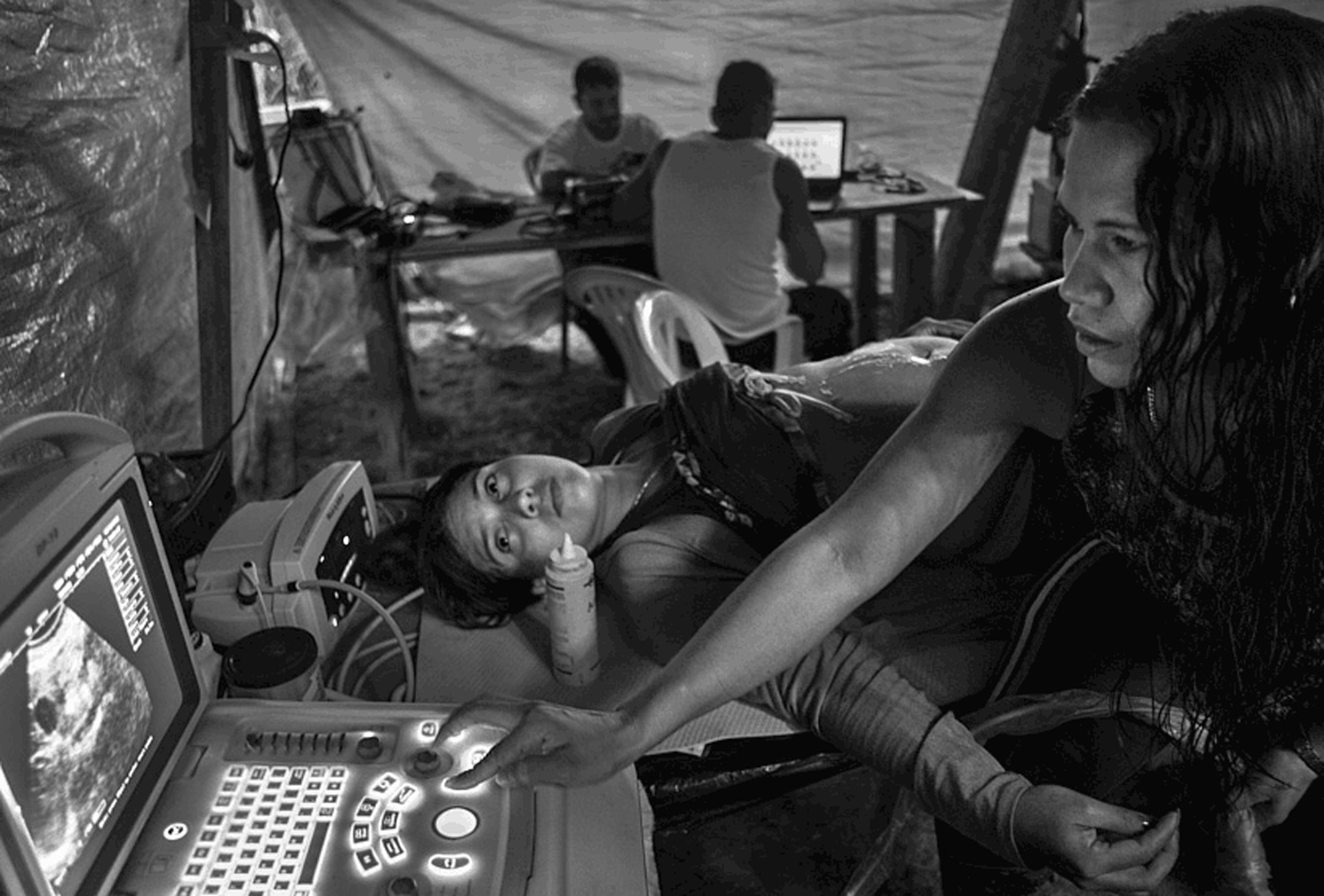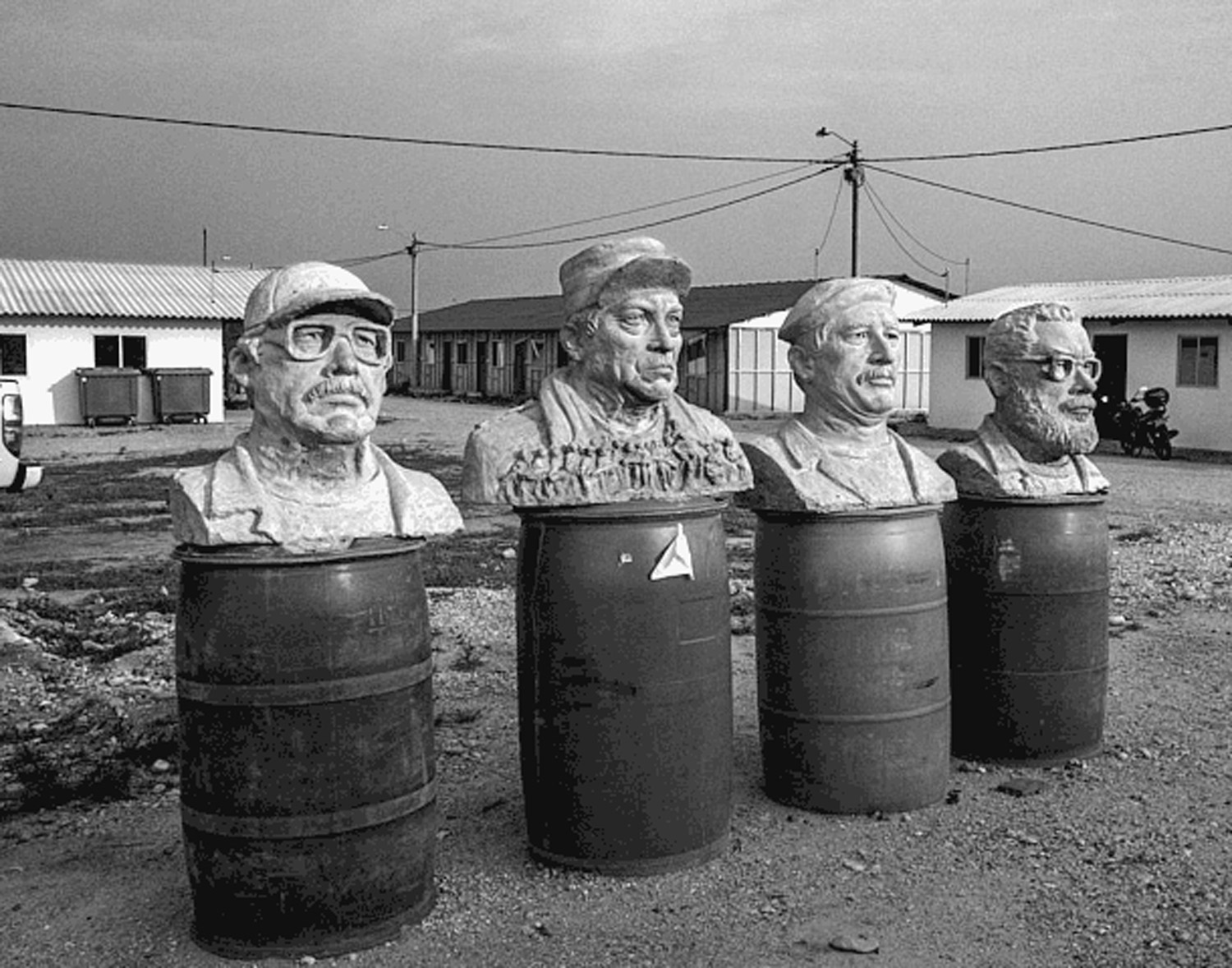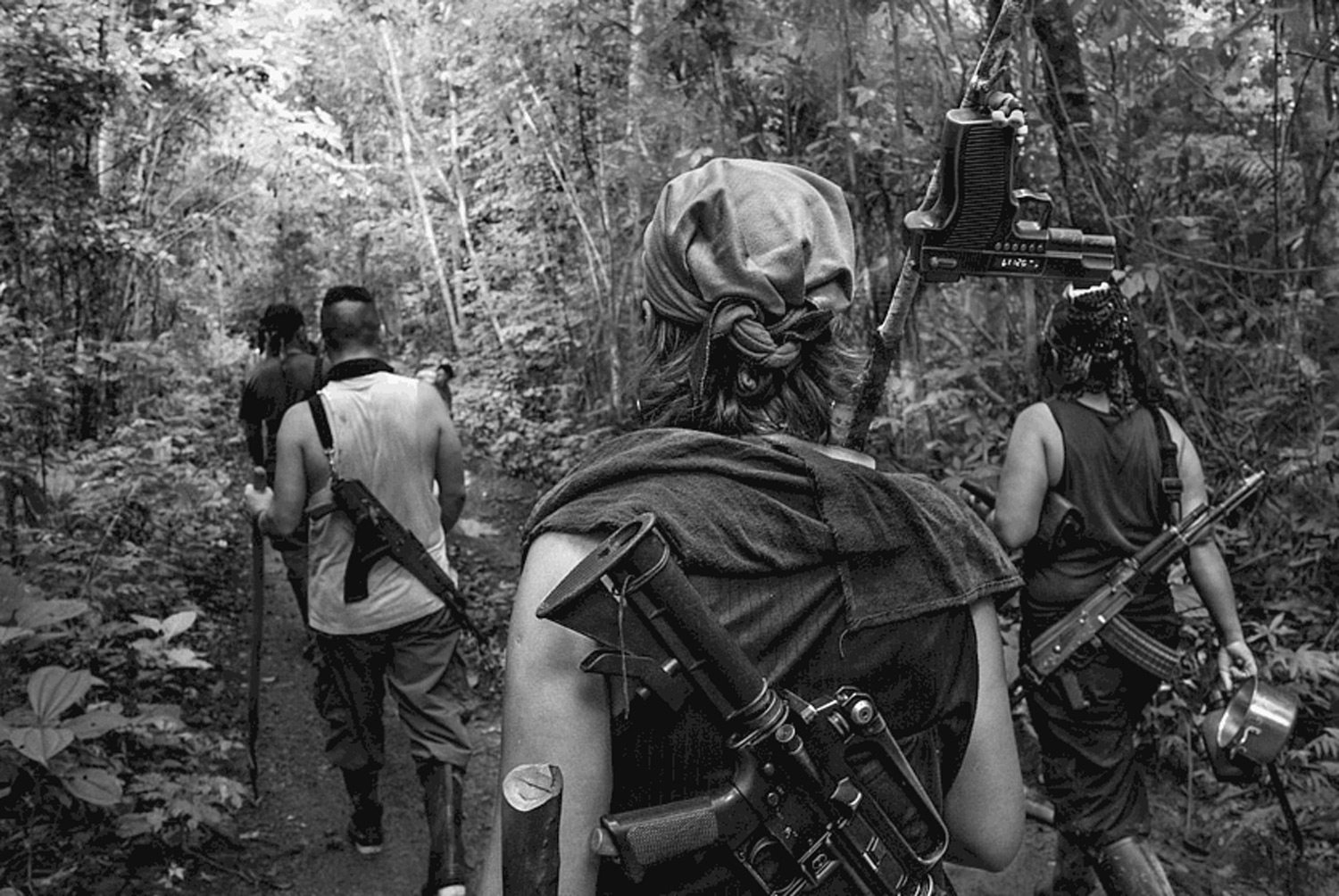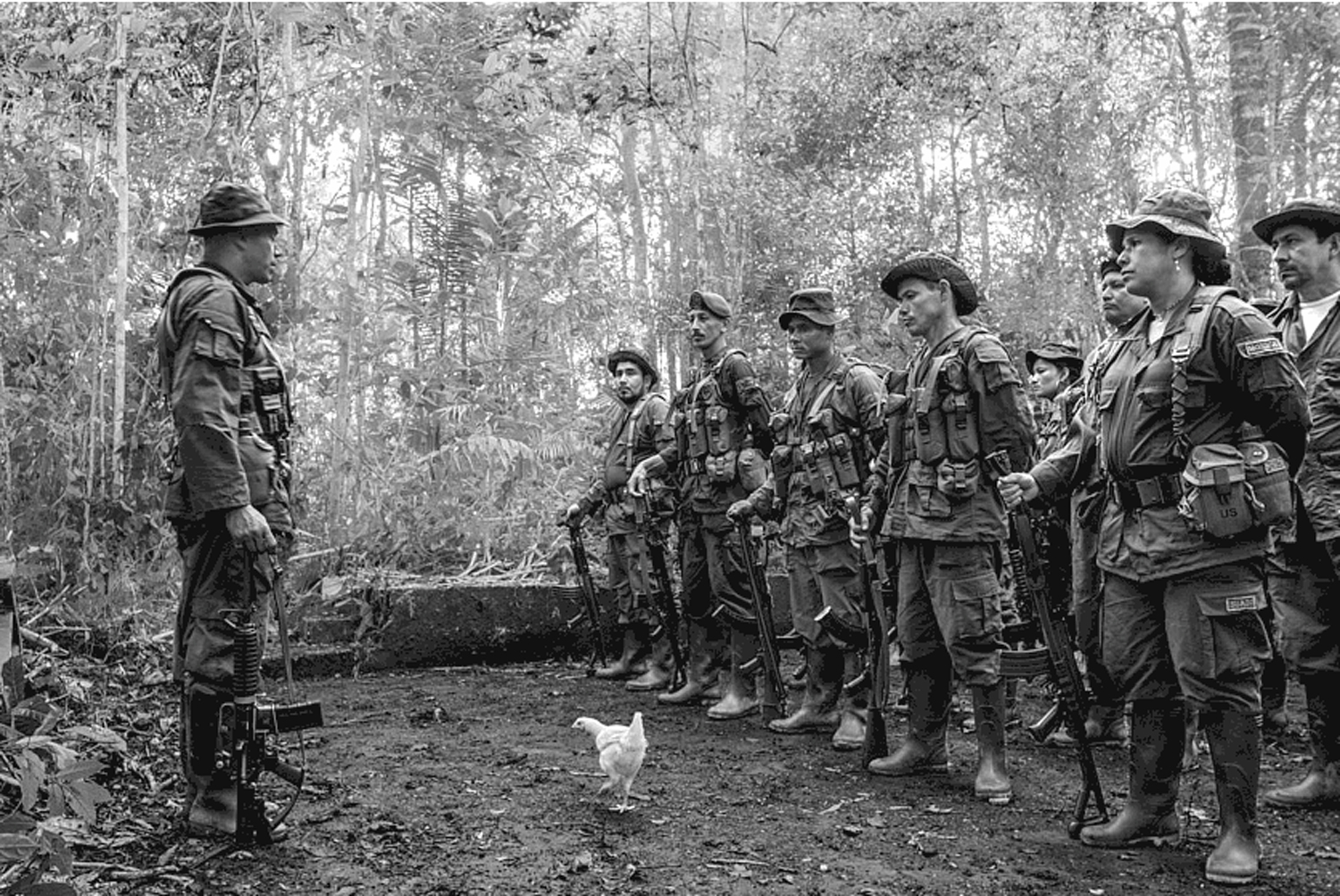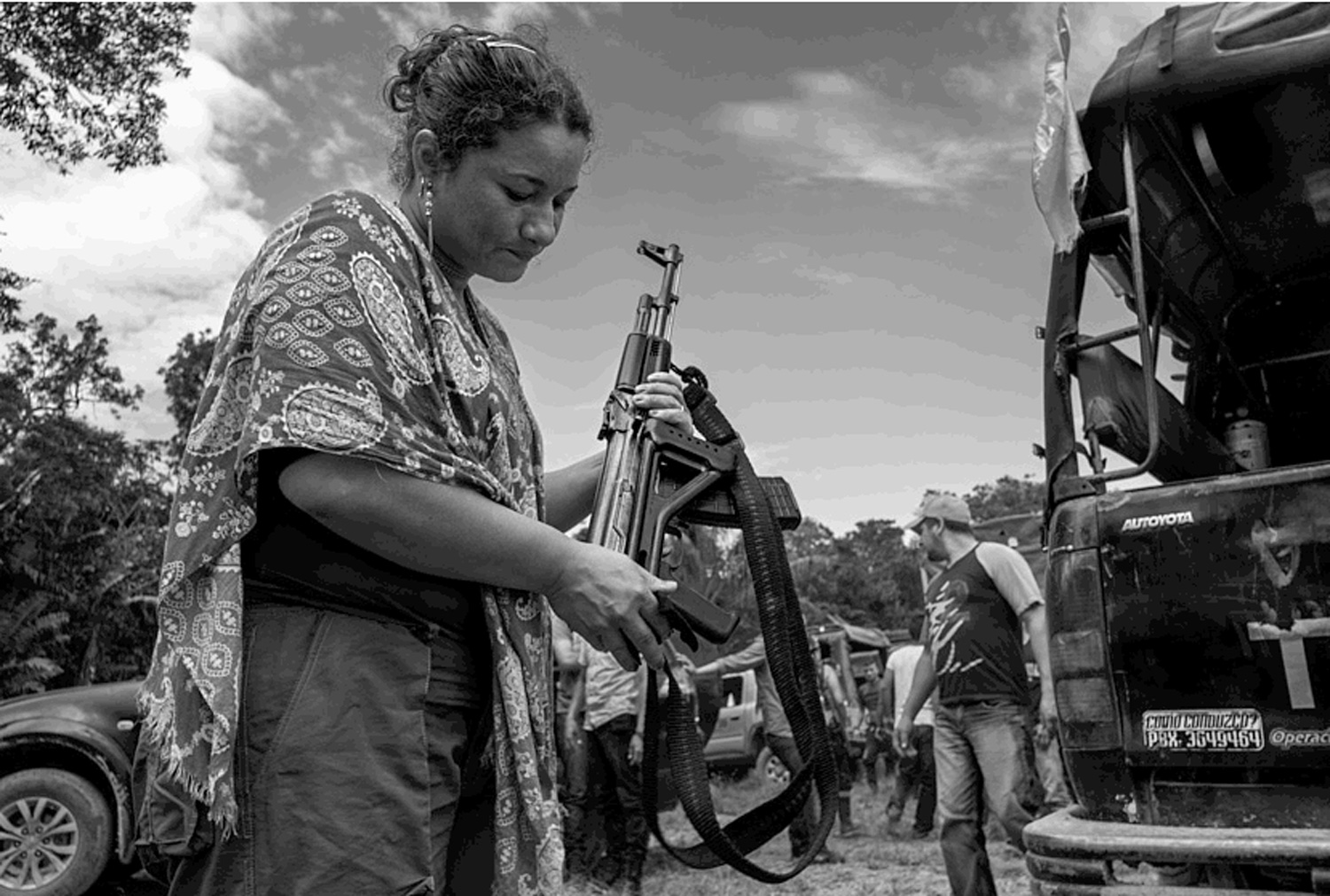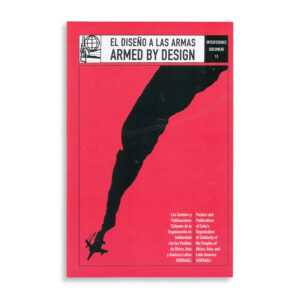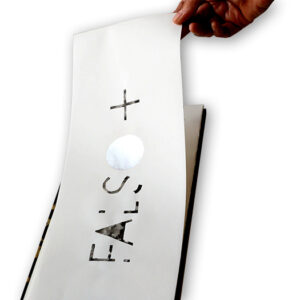Sin Cesar and Metamorphosis
Sin Cesar and Metamorphosis
Date
2019, 2021
Edition Size
1000, 250
Media
Inkjet, Offset print
Binding
Perfect
Format
Artist Book
Dimensions
8 × 6 in
Location
Colombia
Publisher
Editorial Entrelazando, Villegas Editores
Collection
Collection Development, Limited Edition Artists Books$ 480.00
1 in stock
View Collectors
Columbia University, Butler Library
Duke University
Ohio University
Smith College
University of California, Irvine (UCI)
University of California, San Diego (UCSD), Art Library
SIN CESAR is the first book by Editorial Entrelazando, a collaborative project organized by Columbian photo-journalists Ariel Arango and Laura Langa. This enigmatic book combines anthropology and photography to narrate and relate different forms of violence in the department of Cesar, located in northwestern Colombia. This is an artists’ book that dialogues in a plurality of social knowledge, attached to experience and aesthetics, interweaving analytical rigor and conceptual precision. The book uses a variety of papers, printing effects and media, rubber stamping, inserted ephemera, and inset booklets of varying page sizes to draw the viewer into an intimate tactile relationship with the complicated and volatile subject matter. Note that the text is in Spanish.
In order to provide more context to those unfamiliar with the recent history of Colombia, SIN CESAR is paired with the photography book Metamorphosis: Guerrillas in Search of Peace by photographer Malcolm Linton, which documents the last days of one of the world’s oldest, largest, and most notorious guerrilla movements, the FARC in Colombia, South America, as an armed militia.
SIN CESAR is a visual and literary essay that recounts the encounter with the peasant who saw the bodies of three young men extrajudicially executed by the Colombian army in 2008. Thus it begins, located at specific coordinates in the municipality of El Copey (Cesar), and from there it travels spatially and temporally through a territory wounded for decades by dispossession, extensive monoculture of African palm, coal mining, political despotism, and social extermination. A political proposal formulated from the place of writing, archiving, and photography to denounce the violence of the past that is still present in the territories of horror that make up the wounded map of Colombia.
Sin Cesar is a book made independently and handcrafted with different paper textures. Multiple narrative threads allow the transfer of the space and the territory traveled to enter the perceptual experience of the reader. To open its pages is to caress different textures of papers, which are revealed as the story progresses along with other sociological materials, such as ethnographic descriptions, poetry, discursive fragments, documents from various archives, newspaper clippings and headlines, maps, aerial photographs, archival photographs, histological, snippets of conversations, transcripts, rules … all together with the subjectivity of their authors.
See SIN CESAR paged here. This is the third edition of the SIN CESAR and the first edition of Metamorphosis.
—————–
Malcolm Linton began photographing FARC guerrillas in the jungle shortly before a ceasefire with the government in June 2016 and followed them for two years as the country’s peace process unfolded. Since then he has staged numerous exhibitions and talks about the project both in and outside Colombia. In 2019 Villegas Editores published Metamorphosis: Guerrillas in Search of Peace, a hardcover edition with 69 full-page tri-tone images and parallel texts in Spanish and English. The book won first prize in the political/current affairs bilingual category of the International Latino Book Awards 2020.
Colombia’s National Center for Historical Memory reported in 2018 that the FARC and other guerrilla groups were responsible for almost 17% of civilian deaths in the armed conflict from 1959 and 2016, while paramilitary groups and the country’s armed forces caused more than 50%. Without defending the FARC’s actions or ideology, Metamorphosis challenges decades of demonization of the guerrillas by successive governments and the mainstream media. It shows the FARC as people.
—————–
SIN CESAR es el primer libro de la Editorial Entrelazando que nace entre la antropología, la fotografía y el documental para narrar y relacionar distintas violencias en el departamento del Cesar, ubicado al noroeste de Colombia. Un libro – objeto que dialoga en una pluralidad de saberes sociales, pegados a la experiencia y a lo estético, entretejiendo el rigor analítico y la precisión conceptual.Se trata de un ensayo visual y literario, que relata lo que fue el encuentro con el campesino que vio los cuerpos de tres jóvenes ejecutados extrajudicialmente por el ejército colombiano en el 2008. Así comienza, situado en unas coordenadas concretas en el municipio de El Copey (Cesar), para desde allí ir recorriendo espacial y temporalmente un territorio herido desde hace décadas por el despojo, el monocultivo extensivo de palma africana, la minería del carbón, el despotismo político y el exterminio social. Una propuesta política formulada desde el lugar de la escritura, el archivo y la fotografía para denunciar las violencias del pasado que siguen presentes en los territorios del horror que conforman el mapa herido de Colombia.
SIN CESAR es un libro realizado de manera independiente y artesanal con diferentes texturas de papeles. Múltiples soportes que constituyen el hilo narrativo que permiten trasladar el espacio y el territorio recorrido a la experiencia sensible del lector o lectora. Abrir sus páginas es acariciar diferentes gramajes de papeles, que se van revelando conforme el relato avanza junto con otros materiales sociológicos, como descripciones etnográficas desde lo poético, fragmentos discursivos, documentos procedentes de muy diversos archivos, recortes periodísticos y titulares, mapas, fotografías aéreas, fotografías de archivo, histológicas, retazos de conversaciones, transcripciones, normas… todo junto con la propia subjetividad de sus autores.

